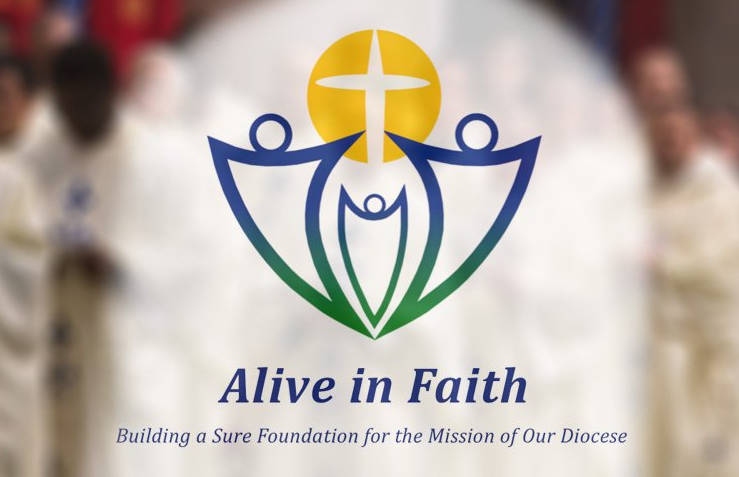
A Privilege and a Rewarding Experience – Personal Insights in to Alive in Faith
October 10, 2016
Alive in Faith October 2016 Newsletter
October 13, 2016Thanks to new commitments that parishioners and clergy are making, we will be able to train men, like Paul Spellman (pictured), who are answering God's call to serve. Previously a teacher for 16 years, Paul, is now returning to the Beda College to commence his second year of studies. He answered some of your frequently asked questions about the priesthood and life in the seminary.
What are your thoughts on the increasing number of men stepping forward to join the priesthood in East Anglia?
I think that Bishop Alan has been an amazing force for good across the Diocese. I know that it is through his dedication and commitment to the formation system that I am currently at seminary. His encouragement, strength and prayers have been a great help to me and I feel that God and Our Lady of Walsingham have been working hard to show us all the way to go.
When did you receive your call to be a priest?
I have felt called to the priesthood almost my entire life; I often describe it as an irritating itch that won’t go away. Although I applied to my home diocese many years ago and spent time in a monastery, I knew that my calling was strongest when I approached Bishop Alan in 2013.
When did you start training for the priesthood?
I joined the Beda College in Rome in September 2014. The college specialises in training for mature students (the minimum age is usually 35) and the course is slightly shorter (four years).
What happens in the seminary?
Daily life begins with prayer around 7.30 am. Lectures are mainly in the mornings. On Wednesday afternoons we have philosophy for the first two years. We have singing practice every Saturday, early evening ' first with the house choir and then the whole house together. Spiritual Direction is every three to four weeks.
In addition, we are encouraged to attend talks being given across the city. Pastoral opportunities are varied and include helping out in a soup kitchen or at a school that provides classes for refugees.
Breakfast and lunch are the two meals that we must attend everyday. It is not just about sharing food together, but also about the sharing of our lives and our experiences.
How important is the formation process?
It is vital. It gives us time to reflect so we recognise where we need to develop, explore and grow so we can become better people at the service of the Lord, the Church and each other.
What do you enjoy most about training for the priesthood?
For me, living, studying and training in Rome has afforded me some fantastic opportunities. I never waste an opportunity, whether it is an extra lecture at the North American College given by Cardinal Denoya or a book launch by one of my lecturers at the Gregorian University in the presence of Cardinal Tagle. I feel so privileged and honoured to study in Rome, and believe that I must engage with as much as I can while I am here.
Is it encouraging to know that people across the Diocese are praying for you and supporting you in your efforts?
Absolutely! It is more valuable than I think people can ever imagine. I remember the Diocese everyday in my own prayers and knowing that parishioners and clergy are praying for us back home regularly moves me. I supported St Peter & All Souls, Peterborough while they were undertaking Alive in Faith. The generous commitments and words of support that people are making is mind blowing.
What are you most looking forward to ' God willing ' when you are ordained?
Simple ' serving the people and parishes of East Anglia; to look for, and find, God in the work that is going on across our Diocese, and to become an active part of that work.



